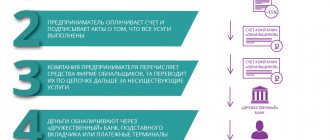Art. 200.1 appeared in the Criminal Code of the Russian Federation relatively recently - in 2013. Its appearance was due to the need to strengthen the fight against the laundering of funds obtained by criminal means, which are often used to finance terrorism and for other illegal purposes. At the moment, the article is actively used in practice: for example, according to the Judicial Department under the Armed Forces of the Russian Federation, in 2018, 39 people were convicted under Article 200.1 of the Criminal Code of the Russian Federation, and in the first half of 2022 - 20 citizens.
The corpus delicti provided for in Part 1 of Article 200.1 of the Criminal Code of the Russian Federation
- Object: social relations regulating the normal functioning of the sphere of foreign economic activity and customs control. Ensuring public safety can be considered as an additional object.
The subject of the crime is money and (or) monetary instruments. Cash includes banknotes, treasury notes and coins, and monetary instruments include traveler's checks, bills of exchange, bank checks, and securities in documentary form.
- Objective side: illegal transportation of funds and (or) instruments across the customs border of the Customs Union within the EurAsEC. A prerequisite for prosecution under Part 1 of Article 200.1 of the Criminal Code of the Russian Federation is the large size of the valuables being moved. According to the note to the article, we are talking about a large amount if the amount of money being moved is more than 2 times the amount of money allowed for transportation without declaration. From paragraph 7 of paragraph 1 of Article 260 of the EAEU Labor Code it follows that it is necessary to declare money and funds exceeding an amount equivalent to 10 thousand US dollars. It should be remembered that from the entire amount transported across the border, the amount not subject to declaration (or the declared amount) is deducted.
Movement is considered illegal:
- outside designated areas;
- with concealment from customs control;
- with no declaration of goods;
- using false documents.
The crime is considered completed from the moment of discovery of false information specified in the declaration, or from the moment of suppression of actions aimed at the export of money or monetary instruments.
- Subject: a sane individual over 16 years of age.
- Subjective side: guilt in the form of direct intent.
Criminal liability increases in the presence of the following aggravating circumstances:
- smuggling on an especially large scale (the amount transported is 5 or more times the amount that can be moved across the border without declaration);
- committing an act as part of a group of subjects.
Please note: if a citizen carried a smaller amount, he may be brought to administrative liability under Article 16.4 of the Code of Administrative Offenses of the Russian Federation. If the illegally smuggled amount is relatively small, the person may be released from administrative liability due to the insignificance of the act.
A citizen can be released from criminal liability under Article 200.1 of the Criminal Code of the Russian Federation if he voluntarily surrenders illegally smuggled money (monetary instruments), provided that his actions do not contain signs of other crimes. If the money was forcibly confiscated, then there can be no question of release from liability.
Contraband item
In the Russian Federation, the subject of smuggling, according to the explanation of the Plenum of the Supreme Court of the Russian Federation in Resolution No. 6 of May 27, 2008 “On judicial practice in cases of smuggling”, according to paragraph 3 of this Resolution, can be any movable property that is moved through the state border and is recognized as a product by the Customs Code of the Russian Federation. Contraband item – and other items that are not goods (for example, a manuscript of a scientific article or an object of intellectual property on a tangible medium that does not have the price of a product, an industrial design). The subject of smuggling can also be Russian currency, traveler's checks, foreign currency, foreign and domestic securities in documentary form.
Punishment for smuggling money and monetary instruments
Alternative penalties for simple smuggling:
- a fine in the amount of 3 to 10 times the amount of money illegally moved across the border (or in the amount of the earnings of the guilty person for a period of up to 2 years);
- up to 24 months of restriction of freedom;
- up to 24 months of forced labor.
If we are talking about qualified trains, then the punishment is tougher. For example, the most severe sanction in this case is forced labor for up to 4 years.
Let's consider real cases of prosecution under Article 200.1 of the Criminal Code of the Russian Federation.
In 2022, at the Koltsovo airport in Yekaterinburg, a passenger on the Yekaterinburg-Tashkent flight illegally moved an amount equivalent to 35 thousand US dollars across the border of the Customs Union. The court found the man guilty of committing a crime under Part 1 of Article 200.1 of the Criminal Code of the Russian Federation and sentenced him to a fine of 100 thousand rubles. The illegally smuggled money was confiscated and turned into state income.
And one more example.
A resident of the Novgorod region, located at Pulkovo airport, intended to send more than 1 million 700 thousand rubles to the Republic of Azerbaijan without declaring this amount. The money was discovered during customs control. The Moskovsky District Court of St. Petersburg found the man guilty of cash smuggling and imposed a fine in the amount of his earnings for 2 months. Undeclared funds became the property of the Russian Federation.
Despite the fact that cash smuggling is a minor crime, it should not be underestimated. The fact is that a person found guilty of smuggling is guaranteed to lose the funds transported across the border: sometimes the bill amounts to millions of dollars. To avoid negative consequences in the form of a criminal record and loss of large sums of money, it is recommended to contact a competent criminal lawyer in a timely manner.
Smuggling and responsibility for it under Russian legislation: practical aspects
Introduction
Smuggling is the illegal movement across the customs border of goods prohibited for import into the country or hidden from the customs service. According to dictionaries, the word itself comes from the Italian contrabando
(
contra
- against and
bando
- government decree) [13]
(Belkin)
.
In Russia, such a crime is under close state control, and punishments for it are constantly becoming more severe.
The relevance of the study lies in the fact that smuggling harms all areas of government activity: political, economic and social. This harm is manifested in the deterioration of relations with the countries through which or from which smuggled goods are supplied, in losses of the state budget, shortfall in tax payments, and a deterioration in the criminal situation. In addition, smuggling makes the more expensive products of bona fide market participants less competitive. That is why the fight against smuggling at the state level, namely legislative regulation of the illegal import/export of products, is very important for healthy market relations and, of course, for the health and safety of citizens.
The purpose of this article is to explore the concept of smuggling, analyze the current Russian legislation to combat this phenomenon and analyze how it is applied in practice.
“Smuggling is one of those crimes that appeared in legislation a very long time ago and has undergone numerous changes in form, but not in substance. Over the years of the existence of smuggling, its essence was reduced to the illegal movement of certain items across the border. Depending on the characteristics of economic and related criminal law policies, the range of items for the movement of which criminal liability was established changed. The very understanding of the border as a constructive feature of the crime has also changed” [15] (Talan, 2015)
.
The current Russian legislation does not contain the concept of “smuggling”; it was previously disclosed in Article 188 of the Criminal Code of the Russian Federation (hereinafter referred to as the Criminal Code of the Russian Federation), which became invalid on December 7, 2011 [7]. Now the concept of “smuggling” can be correlated with the current articles of the Criminal Code of the Russian Federation, namely articles 189, 190, 200.1, 200.2, 226.1, 226.2. Thus, the Criminal Code of the Russian Federation establishes that smuggling gives rise to liability, which will be discussed below.
Another important document in regulating the illegal movement of goods is Resolution No. 2 of the Plenum of the Supreme Court of the Russian Federation dated April 27, 2017, which states the need to pay attention to international treaties and acts during judicial proceedings: “when considering criminal cases of smuggling, courts must take into account that the legal regulation of customs relations in the Russian Federation is carried out in accordance with international treaties and legislation of the Russian Federation on customs regulation. International treaties, in particular, include the Treaty on the Eurasian Economic Union of May 29, 2014 (hereinafter referred to as the Treaty and the Union, respectively) and the Customs Code of the Eurasian Economic Union (hereinafter referred to as the EurAsEC TC), as well as other international treaties concluded by the Russian Federation with member states of the Union, other states (for example, the Agreement on common principles and rules for the circulation of medicines within the Eurasian Economic Union of December 23, 2014)” [8].
In Figure 1
It is schematically presented which actions, in accordance with the law, will be classified as illegal export/import of products.
Picture 1.
Illegal export/import of products
Source:
compiled by the author.
It should be noted that the illegal movement of goods across the border is a criminal offense and is regulated by the following articles of the Criminal Code of the Russian Federation ( Fig. 2
). Liability depends on the type of contraband goods imported into the territory of the Russian Federation.
Figure 2.
Article-by-article regulation of the Criminal Code of the Russian Federation of smuggling
Source:
compiled by the author.
The Criminal Code of the Russian Federation lists all goods and items, etc., that must be declared when attempting to import into the territory of the Russian Federation ( Fig. 3
).
Responsibility for smuggling begins as soon as the item appears on the territory of the Russian Federation.
It must be taken into account that if a person or group of people did not understand that they were transporting prohibited items, punishment cannot be applied to them. But in this case, you must prove your innocence.
Figure 3.
Categories of goods and items for declaration
Source:
compiled by the author.
Responsibility for smuggling is provided in accordance with the Criminal Code of the Russian Federation ( Fig. 4
).
Figure 4.
Types of penalties for smuggling
Source:
compiled by the author.
In criminal law there is the concept of aggravating circumstances, i.e. such legal facts that require a more severe punishment to be imposed on the perpetrator.
The legislation has introduced a number of aggravating circumstances that significantly increase the punishment for smuggling ( Fig. 5
).
Figure 5.
Aggravating circumstances
Source:
compiled by the author.
Along with the items illegally transported across the border, the means used to transport them will be confiscated from the criminals. If the owner of the goods is unidentified, the goods will be transferred to the ownership of the state.
If prohibited substances or weapons are among the confiscated goods, such goods will be transferred to special authorities and destroyed.
As stated earlier, persons who are not aware that they are carrying goods prohibited from moving across the border and who do not understand the responsibility will not be punished. If it suddenly turns out that an illegal product was planted, and this fact is proven, the person who transported this product across the border is exempt from punishment.
If an illegal product was ordered knowingly, the buyer paid for it, provided personal data and received it by mail, liability cannot be avoided.
Thus, illegal transportation of various goods across the border of the Russian Federation entails penalties in the form of fines and even imprisonment.
Tobacco and alcohol products occupy a special place on the market of illegal goods. Despite the state's attempts to control the situation, some actions of the authorities and adopted legislative acts only aggravate the situation. Thus, increasing excise taxes on tobacco products and equating e-cigarettes with regular cigarettes can provoke an increase in smuggled and counterfeit products.
According to Expert magazine, one hundred billion rubles could amount to damage to the Russian budget from the sale of illegal tobacco in 2022, which is 15% more than a year earlier. A sharp increase in excise taxes from the beginning of 2022, as well as the continued unimpeded import of goods from the EAEU countries, complicate the fight against smuggling [14] (Zlobin, 2021).
See also:
Smuggling of narcotic drugs sent by international mail
(
Afonin D.N., Osipov D., etc.
) // Economic relations. No. 1 / 2017
Features of operational-search activities in the customs service of the Russian Federation
(
Drobot E.V., Ivko E.S.
) // Shadow economy. No. 2 / 2017
The share of tobacco illegally transported and sold in Russia, according to the analytical agency Kantar TNS, in the first quarter of 2022 amounted to 10.7%. For comparison: in the third quarter of 2022 it was equal to 7% (data from the analytical company Nielsen) [14] (Zlobin, 2021)
. And despite the fact that the Russian government is making great efforts to combat smuggling, the main problem at the moment is the illegal penetration of cigarettes from the EAEU countries into the Russian market.
The Republic of Belarus ranks first in terms of illegal supplies. Low excise tax rates within the country play an important role here, which makes it possible for Belarusian producers to receive enormous income. For example, in 2022, the share of smuggled cigarettes from the Republic of Belarus increased by more than one and a half times. As Kantar TNS notes in its analytics, about 22% are occupied by Corona cigarettes, and in the total volume, Belarusian cigarettes captured 45% of all illegal imports into the Russian Federation. And of course, the main advantage of such a product is its cost, which in the retail network is 2-3 times lower than that of a labeled pack: 50/70 rubles. instead of 120/130 rub. per pack in 2022 [14] (Zlobin, 2021)
.
As a result, in the period from 2014 to 2022, the budget missed about 300 billion rubles. due to the turnover of illegal cigarettes, and analysts say that the situation may worsen: the likely budget loss in 2021 could amount to 130 billion rubles, and in 2022 - about 282 billion rubles. [14] (Zlobin, 2021).
The measures introduced by the government are also not always effective. It is quite difficult to control shadow market players, and the higher the prices, the more profitable their business turns out to be. In addition, modern laws that equate electronic cigarettes to regular cigarettes are forcing people to switch back to using regular tobacco and cigarettes, and many office buildings and shopping centers have begun to designate smoking areas.
The problem of “interrupted transit” or “false export” still exists. These are cases when, according to documents, cigarettes are transported, for example, from Belarus to Afghanistan in transit through Russia. In fact, the movement of this cargo across the country is not tracked, and it goes on sale in Russian regions, and the “customs transit” procedure is completed fictitiously.
The Russian Ministry of Finance has prepared a draft government resolution stating that criminal liability will be introduced for the illegal import of alcohol and tobacco products into the Russian Federation from countries that are members of the Eurasian Economic Union if the cost of the goods exceeds 100 thousand rubles. [17].
On May 18, 2022, the fifth meeting of the Council of the Eurasian Economic Commission was held, and at it, at the initiative of the Russian Federation, the issue of measures to prevent illegal trafficking in the Russian Federation of alcohol and tobacco products without paying taxes, which are imported into the Russian Federation by unscrupulous persons arriving from other member states of the EAEU, under the guise that it is intended for export to countries that are located outside the single customs territory of the Union, through parts of the border of the state of the Russian Federation located next to the customs border of the Union.
The project provides that the above goods will be classified as strategically important, and for them a large size is a cost that exceeds 100 thousand rubles. [17].
It should be noted that digital control by the state is also beginning to show its effectiveness. Of course, it is impossible to immediately defeat the market for illegal products, but Russia is systematically moving towards legalizing the black market of cigarettes and alcohol. Therefore, from July 1, 2022, the production, import and wholesale sale of cigarettes without labeling was prohibited, and from July 1, 2022, a retail ban on cigarettes without a digital code came into force, and the sale of the remainder of legal unlabeled products was completed [9].
Now each package of cigarettes contains information about where and when it was produced and how it got from the assembly line to the plate. It is impossible to falsify a two-dimensional code in the Data Matrix format - it is created at the factory and applied directly to cigarette packaging. Anyone can read information about the digital code using a regular smartphone and the “Honest Sign” application.
The label has already shown its effectiveness. According to the Ministry of Industry and Trade, only in the first few months after its introduction, the shadows of 18 cigarette manufacturers who were previously invisible to the state came to light. Even now, more than six months after the full implementation of the digital labeling system, new organizations selling tobacco products have been registered.
The government sees great potential in the labeling system, which has just begun to be implemented. In particular, on its basis it is planned to create a state system of continuous market monitoring in most sectors of the economy. This is included in the government Strategy to combat illegal trade in industrial products until 2025 [12].
For example, the “Honest Sign” system is considered the basis of the traceability system for legal products throughout the EAEU. Such monitoring can provide authorities with up-to-date information about the market situation.
See also:
Current issues in the use of technical means of customs control in the conditions of the EurAsEC Customs Union
(
Khorobrova A.L.
) // Economic relations. No. 1 / 2013
The Institute of Material Responsibility in the Light of Reforming Labor Legislation in Kazakhstan
(
Ashiralieva B.S.
) // Economy of Central Asia. No. 3 / 2017
The position of the state in relation to product labeling is clear: it is necessary to reduce the number of counterfeit products on the market and control excise taxes. For legal businesses, this is a good opportunity to prove the quality of their products and gain a competitive advantage. But at the initial stage, the introduction of labeling is a rather complex process that requires additional investment in special equipment and personnel training. Incorrectly labeled products can be confiscated, that is, confiscated in favor of the state. And do not forget that the costs of labeling for enterprises will ultimately fall on the shoulders of the consumer.
Also, distributors of unlabeled products should remember the liability for this offense: from December 1, 2021, liability under Part 1 of Article 15.12 of the Code of Administrative Offenses of the Russian Federation comes for the production of unmarked goods and products, as well as for the putting into circulation of unmarked goods (products). Fines in this case will range from 10,000 rubles. (for individual entrepreneurs) up to 300,000 rub. (for legal entities) [5].
Conclusion
Smuggling is one of the central parts of the state's economy. This phenomenon refers to deliberate actions taken against the decisions of the authorities and associated with the illegal import or export of goods without paying customs duties.
The damage from illegal trafficking of products manifests itself in several directions: economic, political, social and criminal.
Economic damage consists of direct losses to the state budget from shortfalls in tax payments, customs duties and duties, and also consists of undermining the competitive equality of all market participants.
And finally, smuggling worsens the crime situation in the country, as illegal traders form entire communities of organized crime and are international in nature. Therefore, it is almost impossible to fight them within one state. A number of interstate measures are needed to combat the illegal movement of products across state borders.
What can an administrative lawyer do?
Recently, more and more cases of non-declaration and false declaration have been initiated. For this reason, the implementation of competent, and most importantly qualified defense comes to the fore. Without proper legal support, it is very difficult to resist possible abuses by customs officials. A competent lawyer in administrative cases will always be able to raise before the investigation questions about the correctness of determining the cost of transported goods. Often, by challenging the results of the examination of customs value, the resulting amount does not exceed the threshold provided by law, the amount of evasion of customs duties can also be significantly reduced, and accordingly this amount will not be a large amount in the criminal legal sense. In such cases, we will not be talking about a criminal act, liability for which was provided for in Art. 188 of the Criminal Code of the Russian Federation, or currently provided for under Art. 194 of the Criminal Code of the Russian Federation, but about an administrative offense, liability for which is provided for by Chapter 16 of the Code of Administrative Offenses of the Russian Federation. Very common mistakes made by bodies conducting administrative investigations are procedural violations. That is, violations of procedural norms provided for by law. In this case, evidence obtained in violation of the law may be considered inadmissible. And their use in proof will be excluded. By actively defending the case, a professional lawyer will be able to fully exercise all the rights granted to him by law. This may include writing petitions and appealing against unlawful actions of bodies carrying out administrative investigations. In many cases, you can prove your innocence by providing certain evidence. A lawyer with experience in the field of defense in administrative cases will tell you what documents need to be provided. How to properly formalize their inclusion. And finally, if the case goes to court, a professional will always be able to represent your interests in court.
Administrative offenses in the field of customs affairs
Chapter 16 of the Code of Administrative Offenses of the Russian Federation provides for 22 administrative offenses in the field of customs affairs (violations of customs rules), many of which border on crimes. So, in Art. 16.1 provides a description of administratively punishable smuggling. In administrative law, smuggling is understood as the movement of goods and (or) vehicles across the customs border of the Russian Federation in addition to customs control, or with concealment from it by using caches or other methods that make it difficult to detect goods, or by making some goods look like others, or by presenting them to the customs authorities. to the authority of counterfeit documents, documents obtained illegally, documents containing false information, documents relating to other goods and (or) vehicles, or other invalid documents, or using a counterfeit means of identification or a genuine means of identification relating to other goods and (or) vehicles.
How can an administrative offenses lawyer help?
Lawyer Maxim Nikolaevich Shemetov offers legal assistance to entrepreneurs engaged in foreign economic activity, engaged in international business, international trade, cargo transportation, storage of goods, provision of logistics and brokerage services, and trade. In full, everything that has been said can also be applied to cases where you or your loved ones, while crossing the border, violated customs legislation to one degree or another. Lawyer Shemetov provides assistance on a wide range of legal problems and various types of legal disputes. Customs offenses are not the only type of services provided. We are ready to take on the defense in cases of road accidents and any administrative cases. Regardless of their complexity! You can seek qualified legal assistance from our specialists by using the phone numbers on the website or a special form. Any assistance from a lawyer usually begins with legal advice. Therefore, it is best to apply for it immediately, when the problem can be solved with minimal losses. Timely advice from a lawyer in administrative cases will be useful, and sometimes will have a decisive role in the current situation!





